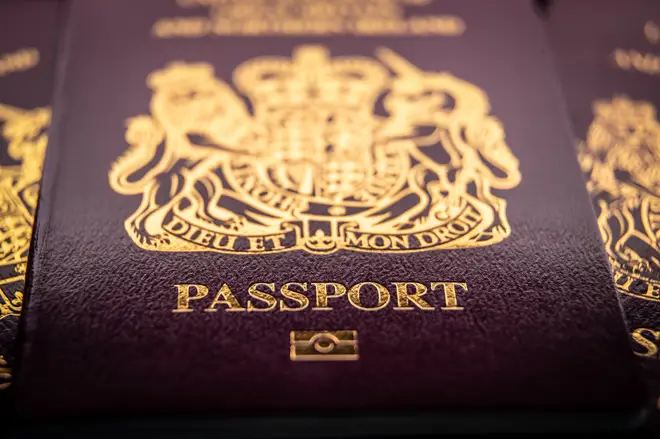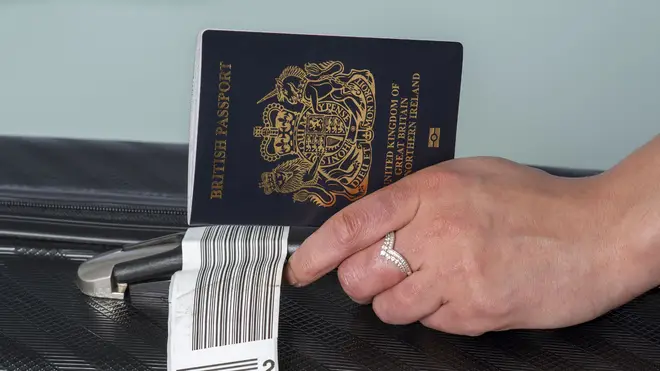
Tom Swarbrick 4pm - 7pm
27 April 2022, 11:13 | Updated: 27 April 2022, 11:40

How long do you need on your passport to travel? And what is the 10 year rule? Here are the latest regulations you need to follow to ensure you get on your holidays in 2022.
Stories have littered the news on how passengers are being turned away from their flights to Europe after discovering there's not enough time on their passports despite them still being in date.
As a result of Brexit, passport rules for UK visitors to countries in the European Union have tightened, leaving many people unaware of the small print.
This has lead to the passport office being inundated with renewal requests and a severe backlog - something Boris Johnson is understood to be "horrified by" as he threatens to privatise the passport office.
Related article: End of face mask rules and vaccine passports as England moves to Covid plan A
Related article: Brits brace for 'coldest May in 25 years' as Artic air sweeps across UK over Bank holiday
So what exactly are the EU passport requirements and rules for travel now? Here's how you can avoid disappointment and a travel disaster:

Now, as a non-EU country, UK passengers need to follow two requirements for travel when it comes to their passport.
The European Union's Your Europe site states: "If you are a non-EU national wishing to visit or travel within the EU, you will need a passport,
- valid for at least three months after the date you intend to leave the EU country you are visiting,
- which was issued within the previous 10 years.”
This means you should check the date of issue of your passport as well as the expiry date. While it may appear in date, if it wasn't issued within the past 10 years you could be refused travel.
These requirements are for the Schengen Area of Europe - which includes popular destinations such as Portugal, Greece and Spain.

The rule was in place before the UK exited Brexit, but now the transition phase has ended, we are treated as “third country nationals”.
The 'issued within the previous 10 years' comes into play because before September 2018, the UK had a policy where you could claim credit on 'unspent time', so you could have been issued with a passport that was valid for 10 years and nine months.
It's these people who could find themselves caught out for travel now.

Passport Crisis Shows Economy Has Improved, Insists Clegg
Children under 16 are required to change their passport every five years, so it's extremely unlikely they will breach the 10 year rule.
You will need to be careful of the three-months remaining rule though, which means a child's passport must be valid for at least three months after the date you end your holiday.